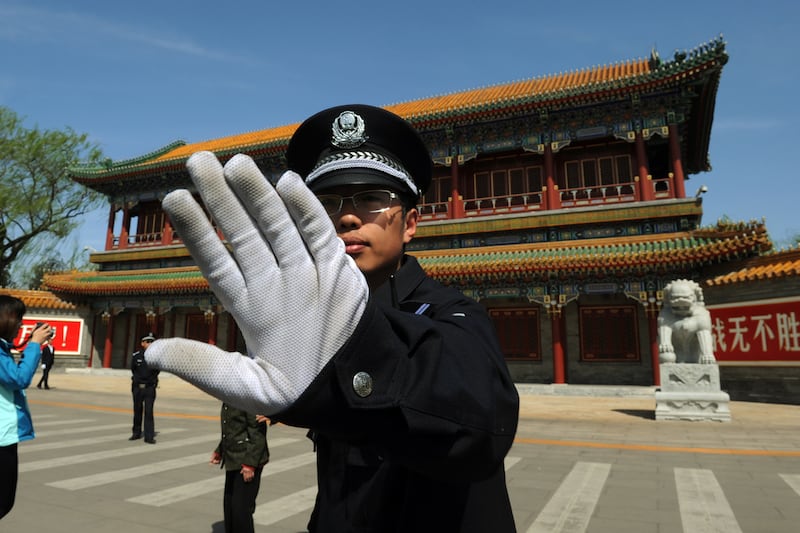What’s a “naked official” in China? The phrase got so hot in the Chinese blogosphere that government censors banned it as a search term—but, no, a “naked official” has nothing to do with porn. It means a crooked functionary who’s sent his family and his assets abroad—assets that people assume were misappropriated largely from public funds. He appears “naked,” but looks deceive.
Public resentment over corrupt and extravagant officials is mounting. To try to dilute public ire, Beijing has announced a new regulation aimed at trimming the cost of government receptions, vehicles, and official trips—three areas of often-excessive spending (dubbed the “the three public consumptions”) that have been rife with abuse and opportunities for embezzlement. By Oct. 1, government agencies will be prohibited from purchasing luxury items and other goods priced above set standards; officials who fail to comply will face disciplinary action.
Last year the Finance Ministry reported that about $220 million was spent on official receptions by the central government. That doesn’t even count the cost of local government VIP banquets, which can be so excessive that funds have to be diverted from other budgetary departments to pay the bills.
Now the gravy train is supposed to come screeching to a halt. Already the clampdown on official expenditures has triggered an uptick in auctions of official vehicles in China, where one in every five Audis is owned by a government entity. In the coastal city of Wenzhou, officials now must restrict banquet costs to less than 60 yuan per capita—which comes out to less than less than $10 a head.
These amount to dramatic limitations for many officials, who’ve routinely dined on shark’s fin soup, abalone, sea cucumber, and a fiery Chinese liquor called Maotai. Each of these can cost thousands of yuan. (All have been struck off the menus of government banquets in Wenzhou.)
Can such measures cool public resentment? Recently, the central government unveiled plans to phase out shark’s fin from official banquets within three years. (Not only can the gelatinous delicacy cost a pricey $600 a pound, but fishermen cruelly slice off the sharks’ fins while they’re still alive.) Chinese netizens derisively criticized the gesture as too timid. “Ordinary people eat starch noodles, officials use the people’s money to eat shark fin,” grumbled one Chinese microblogger, while another predicted sharks would be extinct within three years at any rate.

Many citizens are skeptical that the new regulation will have much bite. Previous campaigns that were supposed to trim government excesses, such as one that called for official banquets to feature just three hot dishes and one soup, resulted in bureaucrats “simply turning a deaf ear,” recalls Prof. Hu Xingdou of the Beijing University of Technology.
“I doubt the current campaign to limit official spending will be successful,” Hu told The Daily Beast, “Since the central government announced limits to official expenditures on purchasing cars, a lot of leading officials have in fact asked state-owned enterprises to buy cars for them … The SOEs have become like private ATM machines for local government officials.”
Even if the new regulations succeed in muting public displays of official extravagance, they still might not make a dent in public anger at “naked officials.” The Commerce Ministry estimated that between 1978 and 2003, about 4,000 corrupt officials left China with at least $50 billion; the past decade has seen many more such cases.
Recently Chinese were outraged by revelations that the family of purged Politburo member Bo Xilai had purchased luxury real estate in London through a front company. One such apartment in South Kensington was purchased for £736,000 and used by Bo’s son Guagua as a “bachelor pad” while he attended Oxford, reported The Financial Times.
At the time, the official salary of Bo Xilai—who was then ranked No. 25 in China’s ruling hierarchy—was a mere $20,000 a year. And in his last public appearance, he’d insisted his wife had given up her legal career to be a housewife. While senior Chinese officials aren’t explicitly banned from owning significant assets overseas, their low levels of government pay raise questions about how they could afford to buy anything in the first place.
If Beijing really wants to rein in corruption, authorities must embrace economic reforms that reduce the government’s monopoly control over many key resources and increase the private sector’s ability to compete with state-owned enterprises, says Tao Ran, an economics professor at Renmin University. “We also need to have a transparent political and economic system and an adequate supervision system [before] we’ll be able to make genuine and long-lasting progress against overspending and graft.”
Without such transparency, who knows what China’s “naked officials” are doing in the shadows—or how many of them there really are.






